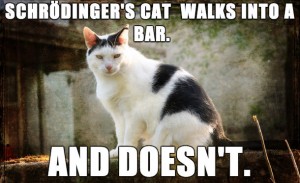I’ve previously complained that the Kalam Cosmological Argument is drivel, but a recent video reminded me that intellectual sophistication can arise from confronting drivel, because it helps expose more people to the tenuous, changing, and incomplete journey of modern science and philosophical interpretation/translation. I knew I was largely in alignment with modern science when I wrote that particular post (and others), but the video, considering the figures involved, provides additional compelling insights to push the viewer into thinking more carefully about the challenges and limits of our collective understanding of who we are, where we came from, and what it means to be here now.
I highly recommend it:
And what I think is most worth emphasizing and that may not be understood by laypeople and religious supplicants, or may not be internalized as deeply as it should be, includes:
- Our everyday experience and intuitions about similarly-sized matter are simply not applicable to quantum and relativistic scales, or to the implications of cosmological theories. “Causality” is one of those concepts. We see this in everything from the simple case of radioactive decay to contra-causal quantum experiments, and ultimately in the question of causation as applied to the universe itself.
- Science operates by applying metaphors, finding the limitations of those metaphors, filtering by empirical results, and then using the refined science as a new metaphor. Most of those metaphors are incompatible with everyday experience. If they weren’t they wouldn’t be so vexingly difficult to understand.
- Many philosophical worries about logical inconsistency are abstractly derived from everyday reasoning and may not apply to modern understandings of causality, space, and time.
- Humility about what we don’t know and effort to unravel it remains the best approach to our mysterious selves and the world.
